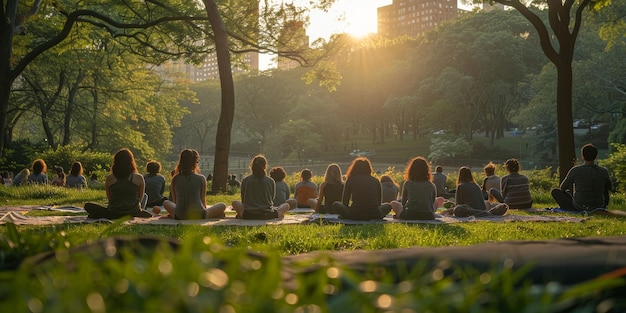

Let’s discuss the concept of community, or Sangha, which holds a crucial place in Buddhism. Alongside the Buddha, representing the goal of awakening, and the Dharma, the teachings leading to awakening, Sangha forms the trio known as the “three jewels” or “three treasures,” signifying their precious nature. Sangha essentially means bringing people together for a shared purpose, like spiritual growth or awakening. We gather to practice and awaken together.
Through platforms like Wildmind, a community-supported meditation initiative, we form our own Sangha. The question is, how can this community aid our spiritual awakening?
I’ll outline seven ways our community can help us wake up, but first, it’s important to note that Sangha isn’t just about membership. It’s not about paying dues and magically reaping benefits; we benefit by actively participating.
To make the most of the online community available to all sponsors, join in and participate (if you’re unsure how to access it, email me).
We all face struggles, such as feeling depressed, doubting ourselves, or losing our sense of worth. In those moments, we need others. When we lose confidence, others can remind us of our value and encourage us. The term “encourage” beautifully includes the word “courage.” When we lack confidence, others can give us courage, which is quite magical.
I’ve noticed that meditating with others is often easier than meditating alone. Twenty minutes can feel tough solo, but with others, thirty minutes or more feels manageable. Many experience improved focus and stability when surrounded by fellow meditators. Even in online communities, knowing others are meditating with us can strengthen our commitment to the practice.
One clear benefit of community is the sense of belonging. We need meaningful connections, to feel part of something larger, to see others and be seen by them. This isn’t just a mental connection but a heartfelt one. We care for others, and they care for us, forming the most meaningful connections.
Sangha shows us we’re not alone. Seeing others share our struggles makes us feel less isolated and helps us judge ourselves less harshly.
Building community connections can be challenging. Sometimes people don’t behave well, express disagreements, or highlight our faults. For example, dealing with a fellow member who was a climate-change skeptic taught me to manage my reactivity. Learning to relate respectfully to differing views without belittling others is crucial. Reactivity pushes us apart, but commitment to community draws us together and helps us grow.
Often, we undervalue our positive qualities, but others see them more clearly. In my training with the Triratna Buddhist Order, we’d go on retreats and “rejoice in the merits” of each person. Hearing others admire us can feel uncomfortable but helps us see ourselves more positively.
In online communities, some hesitate to contribute, fearing they have nothing to offer. But simply participating models bravery and encourages others. Your voice can matter, and you won’t know what you have to offer until you put yourself out there.
Witnessing others act kindly and wisely is inspiring. In the Wildmind community, members often show great kindness, responding to struggles with insight and generosity. These interactions teach us about kindness and deepen our understanding of humanity.
To circle back to our initial question, our community can aid spiritual awakening if we actively participate. Community isn’t automatic; it arises from mutual connection and effort. We create it through acts of bravery, kindness, and communication.
Community is a treasure. The Buddha emphasized that spiritual friendship isn’t just a part of spiritual life; it’s the whole of it. Awakening requires community. Let’s build and nurture this community together.
So glad to be part of this community, and glad to have you here!